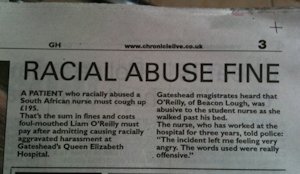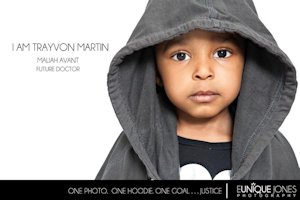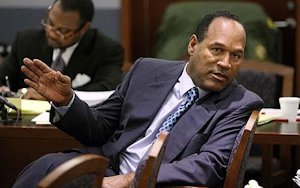Black Heritage 2013
 | | Chess: the real cause of racism |
Though I've focused much of my attention over the years on how politics promotes and exacerbates a divisive view of racism in America, it is important to step back and look at the issue from a cultural perspective. After all, according to a recent AP poll (examined in startling detail here), a majority of Americans of all races in 2012 harbored anti-black feelings. This can't be blamed entirely on politics, though I firmly believe our political climate does nothing to make the situation any better. Indeed, looking for any one "source" for racism in America is a fool's errand, because there are dozens--if not hundreds--of reasons for racism to exist. What I'm interested in, with these annual explorations of the issue, is not identifying the causes or even the solutions, but in looking at ways in which racism is encouraged within our culture. Black History Month is my primary example, but it is hardly the only one.
This year, I'm going to look at news media, and when I talk about "the media," I know I'm using a gross generalization. For clarity's sake, I'm talking about the mainstream sources of news in America these days--big national newspapers such as The New York Times and The Wall Street Journal, sensational cable news networks across the political spectrum from Fox News to MSNBC, well-circulated news magazines like Time and USA Today, and the Associated Press--and I am including many online news outlets that tend to parrot their talking points, such as The Huffington Post, The Daily Beast, Politico, and The Drudge Report. Don't worry, though; I'm going to try to avoid the well-trodden path of discussing media bias, because it is ultimately not helpful to point out that the news media is influenced by unavoidable human impulses. Instead, I'm going to focus on how news stories reflect our cultural weaknesses. Regardless of why this happens, it happens, and it does nothing to heal the racial divide.
 | | Exhibit A |
For example, let's look at last year's Trayvon Martin case, and let's proceed as though you've never heard of it. Exactly one year ago today, on February 26, 2012, George Zimmerman, a 28-year-old man of mixed racial heritage, was in charge of coordinating the neighborhood watch of his gated community in Sanford, Florida. From his car, he noticed a young man in a grey hooded sweatshirt walking about the community and, at approximately 7:09 P.M., called the police, informing them that he was concerned because there had been a rash of break-ins in the neighborhood. The very first question asked by the Sanford Police Department dispatcher was whether the suspicious man was "white, black, or Hispanic," to which Zimmerman replied, "He looks black." While still on the phone with police, Zimmerman got out of his car and pursued the man, against the suggestion of the dispatcher, and eventually ended the call. When police arrived on the scene at 7:17, they found Zimmerman bleeding, wet, and standing near the body of 17-year-old Trayvon Martin. Zimmerman admitted shooting Martin, claiming he did it in self-defense, and was promptly disarmed and placed in custody.
If this had been the story of one man shooting a trespassing kid--without the racial angle to it--it wouldn't have been a very big news story. It would have been a big deal in Sanford, and could have made a splash in the greater central Florida area, but it wouldn't have gotten the national treatment the story wound up getting. In order to get the national attention, the racial angle was exploited, and it quickly became a story about an unarmed black man being shot by a white man who was not a police officer. The tale of Trayvon Martin and George Zimmerman went viral, with people jumping on Twitter or Facebook to post pictures of themselves in grey hoodies and proclaim that they "are" Trayvon Martin, as some kind of protest against the rampant racism in America that allows a black man to die at the hands of a white man for simply acting suspicious (though it's worth repeating that Zimmerman isn't exactly white). George Zimmerman was branded an intolerable racist, Trayvon Martin an innocent martyr, and virtually all the major news outlets sought out details that would support this narrative while ignoring the more messy aspects of reality that cast doubt upon it. Before long, petitions were circulated that called for Zimmerman's arrest, celebrities were offering their opinions on the matter, the New Black Panther Party put a $10,000 bounty on Zimmerman's capture, and even political leaders as high up as the president himself were demanding a full investigation of the matter.
 | | I'm sure this kid is fully aware of all the nuance, history, and detail of the cause for which he is being exploited |
As time went on, some news outlets decided to tackle the "other side" of the story, but this was probably motivated more by a need to fight against the cultural or political narrative than by a desire to see journalistic integrity win out. Indeed, there were people jumping to Zimmerman's defense and making allegations against Martin's character, though they were definitely in the minority. These people took a certain glee in exposing the misleading editing of Zimmerman's 9-1-1 call by NBC Nightly News and the patently false allegations by ABC News that Zimmerman had no visible injuries immediately after the shooting. It had become a news story where people felt like they needed to choose a side, where the implicit punishment for being on the wrong side was to be seen as a racist.
Before I go any further, let's make one thing clear. I believe George Zimmerman is innocent until proven guilty, and I know that I am not in possession of all the facts of the case. I was not present when Zimmerman shot Trayvon Martin, and I do not really care what happens in the trial that is scheduled for later this year. I did not know Trayvon Martin and have no opinion as to what kind of young man he was, nor, again, do I really care. I'm not here to offer an opinion about the case itself, rather about how it was reported. It is my belief that George Zimmerman was tried and convicted by a vast majority of the news media and public long before enough details were known about what exactly happened. It is entirely possible that Zimmerman is guilty of murder--it's even possible that he is a racist (it says something about our society that whether or not he's a racist is more important to most people than whether or not he's a murderer)--but I am not here to try him for his alleged crimes. I am simply using this case as an illustrative example of how our relationship to the news reflects and inflames our cultural anxieties and insecurities.
 | | OJ: I'm sure you have a carefully considered and not at all racially prejudiced opinion, but I don't want to hear it |
The sad fact is that the Trayvon Martin case is not even remotely unique in this regard. One can rattle off dozens of examples of news stories that exploded because of race, including some of the biggest news stories of recent memory. There have even been stories more recent than that of George Zimmerman, such as the former L.A. cop, Christopher Dorner, who went on a vengeance spree and died during a stand-off with police, motivated apparently by a belief that he was the victim of rampant racism within the L.A.P.D. With all of these cases, I find the reaction of the public far more disturbing and distressing than the stories themselves. I am more concerned about the people who were eager to pass judgement on Zimmerman or Martin out of a knee-jerk assumption that they know how the world works through a lens of racial stereotypes and racial profiling. That shows far more racism, in my opinion, than whatever actually happened on the night of February 26, 2012.
However, the good news is that, if upon digging you realize the details aren't as clear-cut as one assumes at first glace, it means that these stories are not exemplars for things happening every day across the country. If they were, surely the news media would cling to the stories that are more perfectly aligned with the narrative. In other words, what happened to Trayvon Martin is actually an occurence rare enough to be newsworthy, and that's got to be a good thing.
-e. magill 2/26/2013
|
|